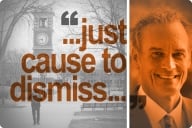You have /5 articles left.
Sign up for a free account or log in.
WASHINGTON -- The panelists were to consider four questions. To summarize the first three: To what extent has Jewish philanthropy shaped the growth and content of Jewish studies as a field; have such external influences changed over the years; and does Jewish studies stand out, apart from the sciences, for its dependence on outside cash? To quote the moderator, Steven J. Zipperstein of Stanford University, on the fourth, “When is money too expensive to accept?”
The Monday afternoon panel, held during the annual conference of the Association for Jewish Studies, featured what one panelist described as “two elephants in the room” – the overall financial crisis and, specifically, the Bernard L. Madoff case. For all the talk of negotiating agendas attached to money, would it still be free-flowing?
But to heave the elephants aside, the panel largely expressed smaller picture, personal perspectives on the subject at hand, “Jewish Studies, Jewish Money and the Future of an Academic Field,” with some audience members calling for a need to survey money's impact on Jewish studies more broadly. A few egregious cases of, shall we say, overactive donors were vaguely described, including one “Madame Donor” who sat on a curriculum committee, and a case of a donor for an endowed chair who unduly interfered with the academic freedom of the professor who held it.
Yet, “overall, I think this is much more a good news story in the field than a murky news story; very rarely is it a bad news story,” said Lisa D. Grant, associate professor of Jewish education at Hebrew Union College-Jewish Institute of Religion. The latter case above, involving the endowed chair, inspired her to research this matter on a small scale as a graduate student 12 years ago. "Is this typical, or was this an outlier? ...I indeed found that this was an outlier."
Jewish support “has been good for the field and for higher education in general,” Grant said, noting, for instance, how many people in the room held named chairs. “The tricky part is that funders have agendas sometimes.” There are times they can be worked out, she said. Her fear, however, is that a clash of agendas "pushes institutions to work in a non-strategic way."
"The questions we need to be asking," she said, are: "Does it fit with our mission? ...What is the impact of this gift on our core? ...And how does it coordinate with other initiatives?"
Yael H. Zerubavel, of Rutgers University, stressed the bedrock principle of faculty control over content. Not surprisingly, she said that Israel studies is the area where she senses the most danger of donors expecting control over the research or positions they support. (That said, she added, “I don’t think that Israel studies is really doing that badly").
Julian A. Levinson, an associate professor of English and Judaic studies at the University of Michigan, acknowledged that there can be conflict when donors come in with the goal of bolstering Jewish life, and find their funds could be used to hire a scholar who studies relevant but controversial topics. “It all comes down to a mutual faith in the academic enterprise,” Levinson said – in other words, a faith among donors that academics will fairly evaluate what constitutes good scholarship in Jewish studies (a diverse and interdisciplinary field, as panelists periodically pointed out).
Levinson also stressed that Jewish studies is not atypical in depending on external funding, given dwindling public support for higher education. “This is a phenomenon common to the university in general,” he said.
For a closing round, Zipperstein, the moderator, asked panelists to “think aloud” about this topic in light of current financial conditions.
Talk to your donors, suggested Paul Zakrzewski, of the Foundation for Jewish Culture. Zakrzewski was the lone representative of the philanthropic side of things at the table.
“I think you can be surprised about what comes out of the mouths of donors, and involving them in this conversation is really important.”








